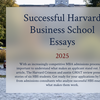On the 19th anniversary of the assassination of President John F. Kennedy '40 yesterday, the Associated Press--the nation's largest news service--devoted five paragraphs to a story about a memorial service held at the Statehouse in Boston. More than twice that amount of space was used to predict today's weather.
At Arlington National Cemetery, outside the nation's capital, Sen. Edward M. Kennedy '54 (D-Mass.), visited JFK's grave with several other family members, including Ethel Kennedy, the widow of Robert Kennedy '48, a spokesman said.
At the John Fitzgerald Kennedy Library on Boston's Columbia Point yesterday, the huge white and black monument to the nation's 35th President was mostly empty, as it is most days, with only a few more visitors than usual, the director said.
At the Brookline home where JFK was born on May 29, 1947, about 50 people--an ordinary number--toured the seven-room, wood frame house where Kennedy lived until he was four years old.
In Cambridge, professors at the school where the three Kennedy brothers received their undergraduate degrees, disagreed about Kennedy's effectiveness as a leader of the executive branch. A majority of the 13 Harvard professors interviewed said, however, that while JFK may have appeared at times as a strong leader, few of his substantive contributions have survived.
At the other end of the city, where Kennedy won his first run for office--to the U.S. House of Representatives--and was re-elected two times, Cambridge's elder politicians reflected emotionally yesterday on Kennedy's life and time describing him in terms dominated by superlatives.
Resul Gunasta, eight years old, was throwing a tennis ball yesterday to a few of his friends on a playground in front of the Edward Devotion School, where JFK attended his first year of school about three blocks from his 83 Beals St. birthplace.
Gunasta was asked if yesterday meant anything special to him.
"Yes, our teacher told us President Kennedy came here and that he was a good President and that he died today," he answered. "I think he died because someone killed him but he could have died from a heart attack."
The third-grader was then asked why Kennedy was a good president. "I don't know. Do you know how he died?"
Gunasta was told that Kennedy had, in fact, been shot. "Can I go back to my game now?" he asked.
Here is how a widely-used encyclopedia describes Kennedy's assassination (the text was written by Warren Professor of American History Emeritus Frank B. Freidel Jr. '55):
In Dallas on November 22, [Kennedy] and his wife were cheered enthusiastically as their open car passed through the streets [on a speech-making tour]. Suddenly, at 12:30 in the afternoon, an assassin fired several shots, striking the President twice, in the base of the neck and the head, and seriously wounding John Cannily, the governor of Texas, who was riding with the Kennedys. The President was rushed to Parkland Memorial Hospital, where he was pronounced dead about a half hour later. Within two hours, Vice President [Lyndon B.] Johnson look the oath as president.
Ten months after JFK's assassination, a special commission--appointed by President Johnson and headed by Chief Supreme Court Justice Earl Warren, reported its findings: Lee Harvey Oswald, a 24-year-old ex-marine who had lived for a time in the Soviet Union, fired the shots that killed JFK. The committee stated that it had "found no evidence" that either Oswald of his own assassin, Jack Ruby, "was part of any conspiracy, domestic or foreign, to assassinate President Kennedy."
Oswald was killed two days after JFK's assassination in the basement of a Dallas police station where he was being held.
"Many memorial were dedicated to the slain leader," according to Freidel. Cape Canaveral in Florida, for example, was renamed in his honor and the John F. Kennedy Memorial Library was established for his public papers and effects.
JFK came to Cambridge for the last time on October 16, 1963, to watch part of the Harvard-Columbia football game and examine several sites for his presidential library, which he wanted to be "closely associated" with his alma mater.
According to City Councilor Walter J. Sullivan, who accompanied JFK, the President clearly preferred a 12-acre site across the street from Eliot House and adjacent to where the Kennedy School of Government stands today.
By 1970, Kennedy's preferred site had been cleared by MBTA officials who spent some $53 million to transplant their repair and storage yards from where they had stood for about 50 years. But just when it appeared construction would soon be beginning, a group of Cambridge residents, worried that the library would bring more tourists, scholars, and cars into a already-congested Harvard Square, launched an all-out battle against the building.
In November of 1975, family members and library corporation officers, weary of public criticism and anxious for the start of construction, chose the Columbia Point, Dorchester, site for the library, museum, and archives complex even though JFK himself had favored a Harvard location.
University and city officials today remain sensitive to the controversy, which sparked emotional charges from both sides. Harvard officials generally say the library would have been a "tourist appendage" to the University, whereas some politicians skill believe a small group of neighbors "kicked the hell out of" the proposal and that the "citizens of Cambridge screwed themselves."
Paul R. Lawrence, Donham Professor of Organizational Behavior at the Business School, who headed one of the community groups opposing construction of the Fibrary in the Square, said yesterday that he had no regrets about the decision.
"The neighborhood organization couldn't see how the parking and traffic could be handled," he said.
City Councilor Francis H. Duehay '55 said yesterday that "it would have been good to have [the library] in Cambridge in the sentimental sense. But it would have created too many problems."
David F. Powers, formerly JFK's assistant appointments secretary in the White House and his campaign manager in 1946, was sitting yesterday in his office at the Kennedy Library, where he now serves as curator of the museum.
The assassination "is a difficult thing to talk about," he said. "I talk about Jack every day of the year, but on this day it's especially difficult to talk about."
Before he travelled to Dallas, Kennedy and his family were planning on meeting at their Hyannisport estate for Thanksgiving. "That was the saddest part," Powers said.
He explained that the hardest aspect of building the JFK memorial was "trying to catch Jack's style and grace" without the benefit of his personal advice and oversight.
If JFK were alive today, Powers said, he would most likely be lecturing and writing at Harvard, Boston University, and other area schools.
If Kennedy were alive and teaching at Harvard today, he would probably spend much of his time answering the significant number of scholars who have now jumped on a bandwagon of criticism against him.
"Symbolically, it was a good presidency," Robert D. Putnam, professor of Government, said yesterday. "But relatively little was accomplished."
JFK was a "very charismatic president [who] wanted to do new things but who still really couldn't get it going," said Bradford A. Lee, assistant professor of History.
Charles S. Maier, professor of History, said that Kennedy "had great potential but little substantial legacy."
And Raymond Vernon, Dillon Professors of International Affairs, said JFK "accomplished great things of spirit but little of substance."
A few of those professors interviewed yesterday had at least a few kind words for Kennedy, who as an undergraduate here lived in Weld Hall and Winthrop House, played football, was member of the Spec Club, and was a business editor of The Crimson.
"A whole generation found him inspirational," said Stephen Thernstrom, Winthrop Professor of History.
Karl W. Deutsch, Stanfield Professor of International Peace, praised JFK's work as a supporter of civil rights and anti-poverty measures.
JFK's presidency "was the high point of America's public image around the world," Putnam noted. "In Europe it is still seen as [America's] golden age."
Robert Coles, Professor of Psychiatry and Medical Humanities, said that Kennedy "offered a stimulus to the ideas of young people through VISTA, through the Peace Corps, and through the recognition of the needs of the poor. These were symbolic gestures which argued for what he hoped to do in the next six years of office."
Cambridge Mayor Alfred E. Vellucci, a 30-year veteran of city polities, was talking yesterday--as he often does--about the times JFK spent with his local constituents.
Vellucci remembered that in 1946, he supported Michael J. Neville, a former Cambridge mayor, in the 11th District race for the House of Representatives seat. But in every election after that, Vellucci said, he counted himself as an ardent Kennedy backer.
Early during his 1960 presidential campaign, Kennedy came to Cambridge and Vellucci helped the candidates organize a block party and spaghetti dinner. Kennedy ate his spaghetti and then walked around shaking hands, even climbing to the second floor of a few two-family dwellings.
Down the street, Kennedy walked into a fish store and, as Vellucci tells it, the owner of the store began to wipe his hands on his apron in order to greet the Congressman and presidential aspirant.
But Kennedy supposedly ran over to him and said, "Give me your hands, they are honest hands."
Vellucci's recollections of Kennedy are typical of those held by his peers.
Edward J. Sullivan, Clerk of Middlesex County Courts and former Cambridge Mayor, recalls: "[Kennedy] had a good memory. No matter where he ran into you, he knew who you were. One time when he was President, I was having a gallbladder operation, and a friend of mine told one of his aides, and when I saw him three months later, the first thing he asked was, 'How do you feel after your operation?'"
Joseph A. Langone III, who had worked on constituent services in Cambridge for then Congressman Kennedy, remembered yesterday that "the people of the district, [which then included parts of Cambridge, Somerville, and Boston,] loved him. The women loved him."
"He was a great guy--he made a great President," Sullivan said. "He had a magnitude that drew people to him."
On Sunday night, Harvard graduate students and professors met at a reception at the Kennedy Library on Columbia Point.
Kennedy School Dean Graham T. Allison '62 said afterwards that he was shocked by one student who told him, while viewing the exhibits there, "So that's what JFK looked like and sounded like. I was three years old when he died."
"It is difficult to believe," Allison said, "that 19 years have passed since that day in Dallas."
Contributing to his report were Crimson staffers Peter Eccles, Michael Hirschorn, Heidi James, Marie Morris, Steve Parkey, John Riccardi, and Katie Schmidt.
Read more in News
Ed School Considers Desegregation CenterRecommended Articles
-
Primary Turnout Hits Record Low; Kennedy, Robinson Win EasilyTwo days after hundreds of area college students turned out to audition for the game show "Who Wants to Be
-
Tsongas Predicts Kennedy Will RunWASHINGTON--Sen. Paul E. Tsongas (D-Mass.) said yesterday he won't stand in for Sen. Edward M. Kennedy '54 (D-Mass.) because he
-
Cercle Elects New OfficersAt a recent meeting held in honor of Professors Dupricz and De la Velle, of the University of Louvain, the
-
George Cabot LodgeGreek tragedy is a sad spectacle on the political stage, as George Lodge is painfully proving. The awkwardly handsome young
-
BOOKENDS: Lance Morrow’s Presidential Dream Team Falls ShortThe title of Lance Morrow’s new book is remarkably fascinating: “The Best Year of Their Lives: Kennedy, Johnson, and Nixon
-
Shaheen Resigns from Institute of PoliticsFormer New Hampshire Gov. Jeanne Shaheen has stepped down as the director of Harvard's Institute of Politics to run for













